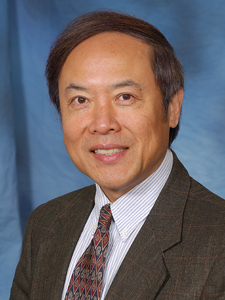Specialized iNANO Lecture: Design, Synthesis, and Characterization of Nanoparticles for Biomedical Applications
Dr. Donglu Shi, College of Engineering, University of Cincinnati
Info about event
Time
Location
iNANO meeting room 1590-213, Gustav Wieds Vej 14, 8000 Aarhus C

Dr. Donglu Shi, Professor and Chair of the Materials Science and Engineering Program, College of Engineering, University of CincinnatiDesign, Synthesis, and Characterization of Nanoparticles for Biomedical ApplicationsIn this presentation, current nanotechnologies will be reviewed for biomedical applications. To meet the current challenges in medical diagnosis and therapy, the nanoparticle designs need to be tailored to the clinical requirements in cell targeting, optical/MRI imaging, drag delivery, and magnetically/photonically-activated cancer therapy.A typical design involves conjugating various functional groups on the nanoparticles for immobilizing biological molecules such as DNA, RNA, and antibodies. Limited by symmetrical nanoparticles for these purposes, a dual-surface system, namely the Janus particle, has been designed and synthesized that offer multiple functionalities including Fe3O4 for magnetic separation, quantum dots for imaging, drug storage for cancer therapy, and biomarkers for targeting.Some novel nano-therapeutic approaches will be reviewed including photothermal, photodynamic, and magnetic hyperthermia using various nanoparticle systems. The physical properties of these nanoparticles systems, such as photo-luminance and magnetic dipole interactions of Fe3O4 nanoparticles, will also be presented. Biography: Donglu Shi has so far published 230 refereed SCI journal publications including Physical Review Letters and Nature. He has edited 10 books in superconductivity, functional thin films, nanomaterials, biomaterials, tissue engineering, and nano biomedicine. He is currently the Editor-in-Chief of Nano LIFE, and Associate Editor of Materials Science & Engineering: C, and J. of Nanomaterials. He has won the SIGMA XI Research Recognition Award, Honor Roll Professor Award, and Neil Wandmecher Teaching Award. The most recent works on nano-biomedicine pioneer some novel approaches in developing multifunctional nano carrier systems for early cancer diagnosis and therapy. Based on new designs of nanostructures, these methods have enabled successful cell targeting for tumor therapy, optical imaging by quantum dots, photothermal ablation of cancer cells, and drug delivery by intelligent triggering mechanisms. These works have been published in Advanced Materials (2006-2013). | |
| Host: Assistant professor Megan Yi-Ping Ho, iNANO & Dept. of Molecular Biology and Genetics, Aarhus University |
